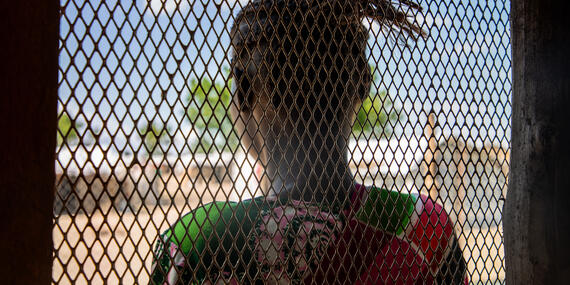Tracking humanitarian responses to gender-based violence

Adequate funding is critical for an effective aid response to prevent and address the impact of violence and discrimination against women and girls in crisis situations.
The OCHA-managed Financial Tracking Service (FTS) is crucial in this response, as it tracks global funding flows to support humanitarian action, including for efforts to address gender-based violence (GBV).
By identifying funding trends and gaps, FTS reveals areas or specific countries where resources are flowing or urgently needed for GBV prevention programmes.
One such example is Ethiopia. Efforts to prevent the resurgence in female genital mutilation and child marriage in Ethiopia were less than 7 per cent funded by the end of 2023. With this knowledge, advocates can now focus on securing increased funding from donors, ensuring that no community is left behind in tackling these crimes.
April Pham, Chief of OCHA’s Gender Unit, commends the pivotal role of data in strategic advocacy to increase funding for GBV programming.
“Data around GBV funding needs to be better reported and it needs to be meaningful,” she says. “It’s critical that GBV continues to be afforded a priority theme in advocacy, and we are trying to amplify and empower the sector and, in particular, empower local organizations to address this. FTS informs our work greatly and is a driver in mobilizing the increased resources needed. The costs of inaction are too great.”
The cost of inaction
When GBV programming is chronically underfunded, the consequences are far reaching and devastating. GBV survivors face physical, emotional and psychological challenges, and they are often unable to access essential services, such as health care and legal assistance. The ripple effects of GBV also extend far beyond individual lives, affecting entire communities.
“Financial tracking enables effective planning and programmatic monitoring,” says Lisa Doughten, Director of OCHA’s Financing and Partnerships Division. “Supporting these processes with accurate data helps ensure we are accountable to affected people and to those who are generously contributing funds.”
Data needs to be consistent
FTS is only as good as the data it receives. Inconsistent reporting can lead to incomplete or inaccurate information, making it challenging to draw definitive conclusions and comparisons.
As a result, FTS is transforming its service by strengthening reporting into the system, bolstering its curation, and improving its analysis, verification and data presentation.
Jessica J. Jordan Davila, FTS Manager, explains: “FTS is stronger today than it has ever been, thanks to the diligent work of humanitarian partners around the world. They are bolstering reporting into the system and shaping the improvements being made. Decisions are better informed, and assistance to people who need it is being strengthened.”
Harnessing the power of data alongside other crucial aligned strategies, including much-needed funding, will illuminate a path towards a future where every woman and girl can live free from violence and discrimination.
The world is gearing up for International Women's Day, and the theme of the sixty-eighth session of the Commission on the Status of Women is accelerating gender equality by strengthening financing with a gender perspective. It’s clear that GBV demands our unwavering attention.
To learn more about FTS, visit www.fts.unocha.org, or contact the FTS team at fts@un.org
